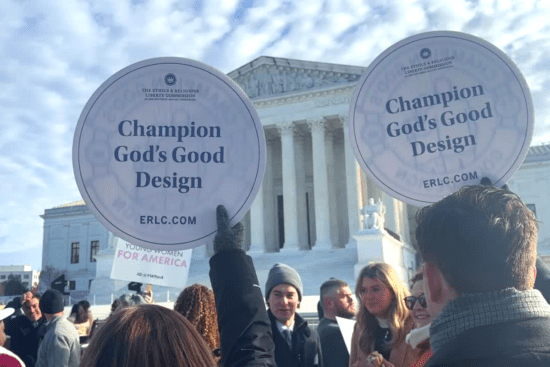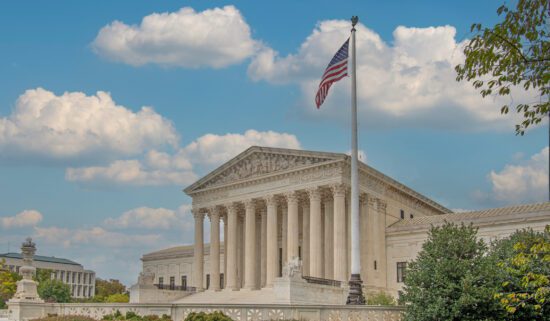The Supreme Court convened last week at the same time as the March for Life and ERLC’s Evangelicals for Life 2019. There continued to be significant buzz about whether Roe v. Wade and Planned Parenthood v. Casey could be overturned in the near future by the next abortion-related case to reach the Supreme Court. If Roe v. Wade were to be overturned, then it would be up to state governments to determine the legality and regulations on abortion throughout our country.
This context is important because it is state-level legislation on common-sense abortion regulations that make up the dozens of cases winding their way through our federal and state courts. One of these cases (or a collection of these cases) could determine the next Supreme Court case on abortion.
Mary E. Harned, J.D., at the Charlotte Lozier Institute put together an excellent legal analysis of all of these cases last fall, their current status, and what comes next. Here’s what you need to know about these state laws and these cases:
Bans on general funding to abortion providers: The 6th Circuit is currently reviewing a case involving an Ohio law preventing the Ohio Department of Health from contracting to provide funds from nonabortion-related federal health programs to abortion providers and affiliates.
Restricting/banning second trimester dismemberment abortions: Texas, Arkansas, Alabama, Kansas, Kentucky, Oklahoma, Louisiana, Mississippi, and West Virginia all have laws restricting second-trimester Dilation and Evacuation abortions (D&E), otherwise known as dismemberment abortions. The laws from Texas and Arkansas are being heard by federal appellate courts, and most of the others are making their way through state or federal courts.
Bans on discriminatory abortions: Many states have passed laws banning abortions when they are elected due to the sex, race, or genetic anomaly of the baby. Planned Parenthood has filed suit on Indiana’s law, and there’s another suit against Ohio’s law banning abortions of children diagnosed with Down syndrome. The Supreme Court is currently deciding whether to take up one of these cases originating in Indiana.
Admitting privileges: One of the Supreme Court’s last abortion-related cases was Whole Women’s Health v. Hellerstedt, a narrow ruling declaring a Texas law requiring abortion doctors to have admitting privileges to be unconstitutional. Similar types of laws that are distinct and different in Louisiana, Missouri, and Kentucky are currently being litigated. These cases are less likely to be taken up by the Supreme Court given their recent ruling.
Chemical abortion regulations: Missouri and Arkansas laws requiring abortion-inducing drug providers to contract with physicians to handle complications are currently being challenged in courts.
Mandatory ultrasound and reflection periods: A Kentucky law requiring abortion providers to perform ultrasounds, display and describe the images, and audibly play the baby’s heartbeat is being challenged in court, along with an Indiana law requiring an 18-hour reflection period after an ultrasound, are being challenged in court.
Parental involvement: A law in Alabama modified which judicial proceedings are required for a minor to bypass parental consent requirements before an abortion. This law is being challenged at the appellate level.
Medicaid funding to abortion provider cases: These cases relate to state laws or state executive branch regulations that prohibit abortion providers from receiving money in various Medicaid programs. Challenges to these laws have claimed various legal arguments, which have had varying levels of success as cases wind through nearly every appellate circuit in the country. This past December, the Supreme Court rejected the most likely case in this category, with Justice Thomas arguing in a dissent joined by Justice Gorsuch and Justice Alito that the Court was ducking the case to avoid ruling on any case that possibly involved abortion, even if the legal question had nothing to do with it whatsoever.
Over the next several years, one or more of these cases will reach the Supreme Court. If the Court acts as it has in the past, we should expect a narrow ruling that modifies our nation’s abortion jurisprudence rather than completely overturns it. It could, however, also give the Court an opportunity to overturn Roe v. Wade.
We will keep you updated.










